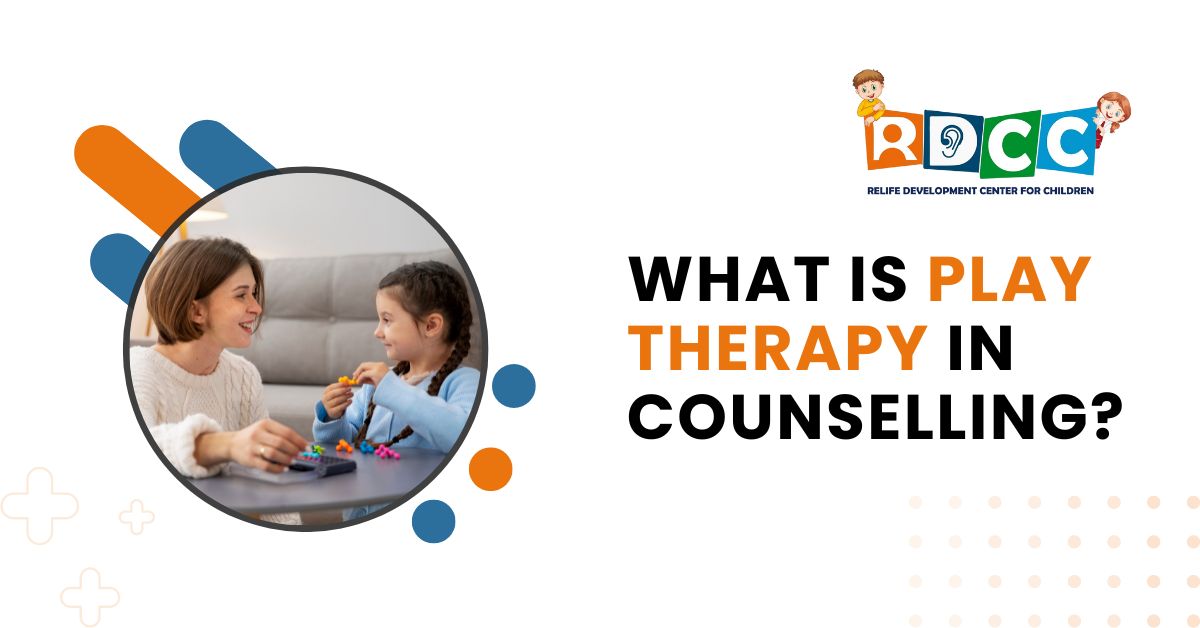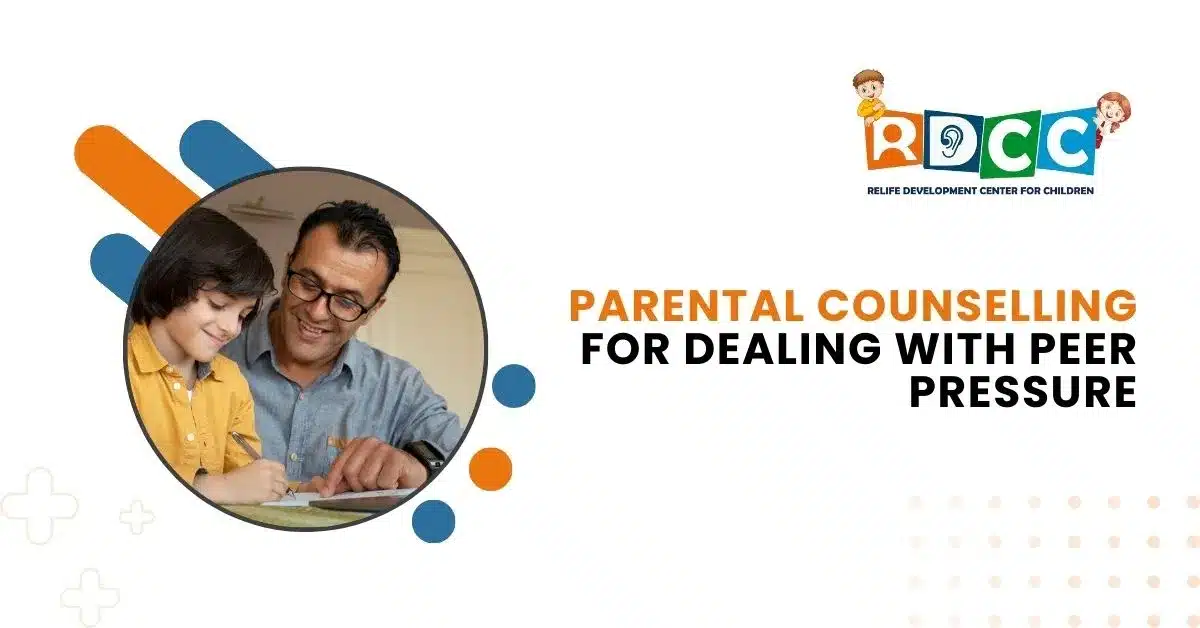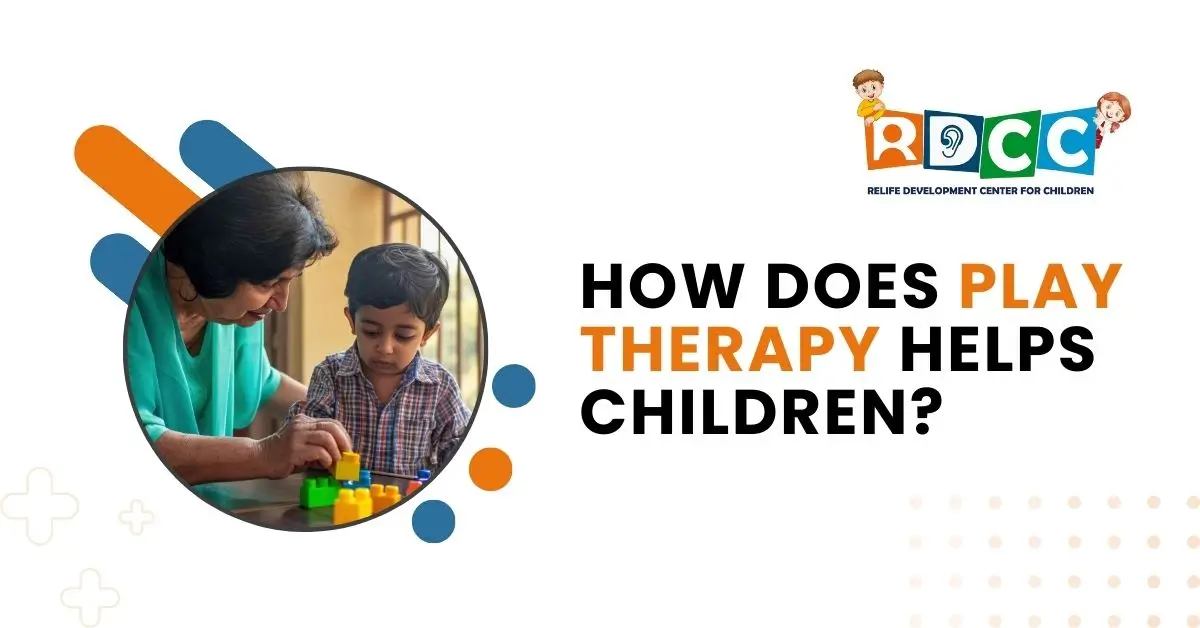
At RDCC Healthcare, Vadodara’s Leading Child Development Centre, we understand the unique power of Play Therapy in counselling. This innovative therapeutic approach is especially effective for children, leveraging their natural inclination for play to address emotional and psychological challenges.
Understanding Play Therapy in Counselling
Play Therapy is a counselling technique that uses play to help children express their emotions, resolve conflicts, and develop coping skills. Unlike traditional talk therapy, which might be challenging for younger children, Play Therapy allows children to communicate through toys, games, and creative activities. This approach is grounded in the belief that play is a natural medium for children to express their feelings and make sense of their experiences.
Benefits of Play Therapy in Counselling
Emotional Expression: Play Therapy provides children with a safe space to express their emotions. Through activities like drawing, role-playing, and using toys, children can externalize feelings they might not yet have the words for.
Problem-Solving Skills: By engaging in structured play, children learn to navigate challenges and solve problems in a supportive environment. This helps them develop critical thinking and resilience.
Social Skills Development: Group Play Therapy sessions foster social skills by encouraging interaction and cooperation with peers. Children learn to share, negotiate, and work as a team.
Increased Confidence: Successful completion of play-based activities boosts children’s self-esteem and confidence. They gain a sense of accomplishment as they navigate and overcome challenges through play.
Safe Therapeutic Environment: Play Therapy creates a non-threatening environment where children feel comfortable exploring their thoughts and feelings. This helps build a strong therapeutic relationship between the child and the therapist.
Frequently Asked Questions
What is Play Therapy in Counselling?
Play Therapy is a therapeutic approach that uses play to help children express emotions, resolve conflicts, and develop coping skills. It involves using toys, games, and creative activities as a medium for communication.
How Does Play Therapy Benefit Children?
Play Therapy benefits children by allowing them to express emotions safely, develop problem-solving skills, improve social interactions, and increase confidence through engaging in play-based activities.
What Types of Activities are Used in Play Therapy?
Activities in Play Therapy include role-playing, drawing, storytelling, and interactive games. These activities help children explore feelings, practice social skills, and solve problems in a therapeutic setting.
Is Play Therapy Suitable for All Ages?
While Play Therapy is primarily used with younger children, it can be adapted for older children and adolescents. Techniques may vary based on the child’s developmental stage and individual needs.
How Does Play Therapy Differ from Traditional Talk Therapy?
Play Therapy differs from traditional talk therapy by using play as the primary method of communication. This approach is more suited for children who may find it difficult to express themselves verbally.
How Long Does Play Therapy Take to Show Results?
The duration of Play Therapy varies depending on the child’s needs and goals. Some children may show progress in a few sessions, while others may require ongoing therapy for more complex issues.
Conclusion
At RDCC Healthcare, we harness the power of Play Therapy to support children’s emotional and psychological development. Our skilled therapists use engaging, evidence-based techniques to ensure that each child’s therapeutic experience is both effective and enjoyable. Contact Us today to learn how Play Therapy can benefit your child’s overall well-being.




